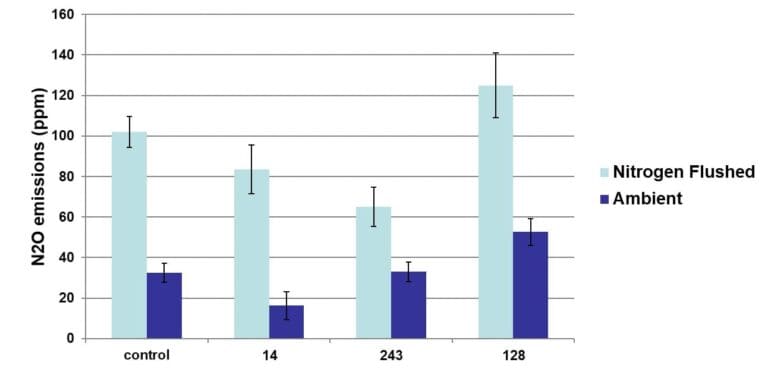
Save Foods creates new subsidiary to combat climate change and foster sustainable agriculture.
The Need for Sustainable Agriculture and Climate Action
Save Foods has formed a strategic partnership with Ya’aran Investments Ltd. and the Agricultural Research Organization to combat greenhouse gas emissions and promote sustainable agricultural practices. This joint effort is focused on tackling the adverse consequences of nitrous oxide (N2O), a greenhouse gas that is potentially 265 times more harmful to the climate than carbon dioxide (CO2). The threat N2O poses to the environment is grave and its main driver lies in certain agricultural practices. Save Foods’ newly created subsidiary has developed pioneering solutions that can mitigate the impact of N2O.
Revolutionary Research by Nitrousink
Recently, the Volcani Institute achieved groundbreaking results after successfully identifying and isolating two bacteria species from wheat roots. In a breakthrough discovery, it found these bacteria are naturally capable of reducing N2O emissions under various environmental conditions. One of the bacteria is active under oxygen conditions and reduces emissions by 44%, while the other reduces emissions by 39% under oxygen-depleted conditions. The two bacteria species were grown in a lab and later successfully introduced to greenhouse wheat samples. The implications of these findings are profound and offer a potential way to cut N2O emissions when approximately 73% of man-made N2O emissions entering the atmosphere are a result of agricultural soil management.
According to the Food and Agriculture Organization of the United Nations, 770 million tonnes of wheat were grown on 220 million hectares in 2021, what makes the discovery accessible and important.
Promoting Sustainable Agriculture
By embracing this natural, “green” solution, Save Foods’ new subsidiary aims to revolutionize the agricultural sector and transform it into a powerful force for positive change. Both organizations firmly believe that supporting increased food production to nourish the growing world population can go hand in hand with minimizing the environmental impact. Central to this endeavor is the understanding that agriculture is indispensable for sustaining humanity’s needs, and emissions are a natural by-product of agricultural activities. The negative impact of N2O is only recently being understood and investigated. At present, this pioneering solution is the market’s only known solution to combat N2O – a solution that is both environmentally friendly and economically viable.
